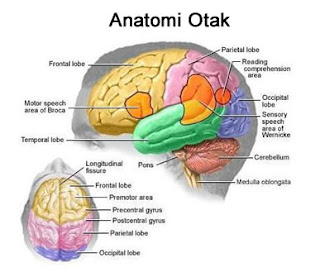Symptoms
of brain cancer generally is not easily detected because the target of
the attack the cancer is in the brain, an organ that is not visible from
the outside. Even
so, there are some indications that could be considered to determine
whether a person is experiencing symptoms of brain cancer or not. Some of the symptoms of brain cancer are easily found as follows:
Latest Post
Showing posts with label What Causes Cancer. Show all posts
Showing posts with label What Causes Cancer. Show all posts
3:48 AM
http://www.youtube.com/watch?v=LEpTTolebqo&feature=player_embedded#t=0s
What causes cancer?
Written By Unknown on Tuesday, October 23, 2012 | 3:48 AM
What causes cancer?
Cancer is ultimately the result of cells that uncontrollably grow and do not die. Normal cells in the body follow an orderly path of growth, division, and death. Programmed cell death is called apoptosis, and when this process breaks down, cancer begins to form. Unlike regular cells, cancer cells do not experience programmatic death and instead continue to grow and divide. This leads to a mass of abnormal cells that grows out of control.What is cancer? - Video
A short, 3D, animated introduction to cancer. This was originally created by BioDigital Systems and used in the Stand Up 2 Cancer telethon.http://www.youtube.com/watch?v=LEpTTolebqo&feature=player_embedded#t=0s
Labels:
What Causes Cancer
3:46 AM
What is Cancer? What Causes Cancer?
Cancer is a class of diseases characterized by out-of-control cell
growth. There are over 100 different types of cancer, and each is
classified by the type of cell that is initially affected.
Cancer harms the body when damaged cells divide uncontrollably to form lumps or masses of tissue called tumors (except in the case of leukemia where cancer prohibits normal blood function by abnormal cell division in the blood stream). Tumors can grow and interfere with the digestive, nervous, and circulatory systems, and they can release hormones that alter body function. Tumors that stay in one spot and demonstrate limited growth are generally considered to be benign.
Cancer harms the body when damaged cells divide uncontrollably to form lumps or masses of tissue called tumors (except in the case of leukemia where cancer prohibits normal blood function by abnormal cell division in the blood stream). Tumors can grow and interfere with the digestive, nervous, and circulatory systems, and they can release hormones that alter body function. Tumors that stay in one spot and demonstrate limited growth are generally considered to be benign.
Labels:
Cancer,
dangerous,
diagnosis,
diseases,
hormones,
malignant,
metastasized,
oncologists,
tumors,
What Causes Cancer,
What is Cancer









